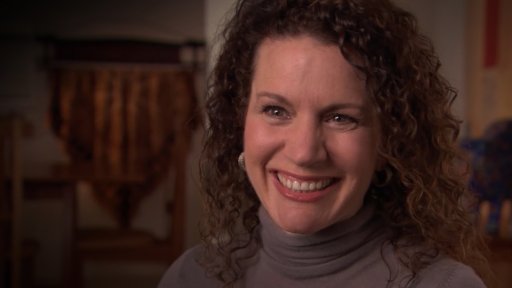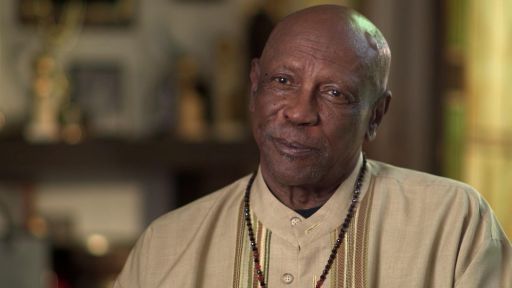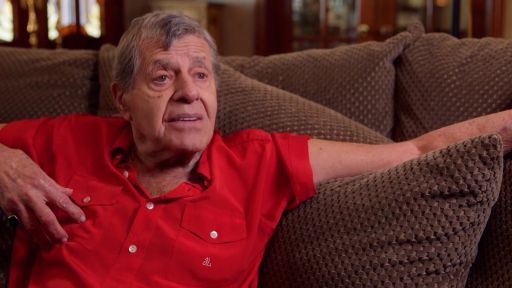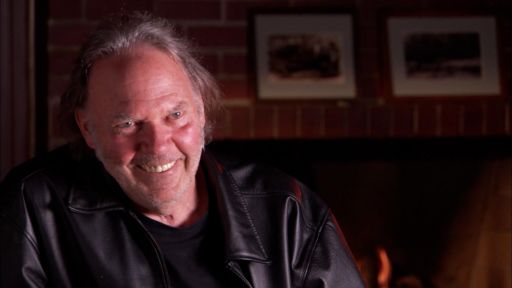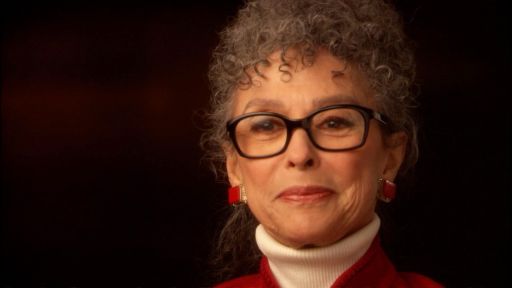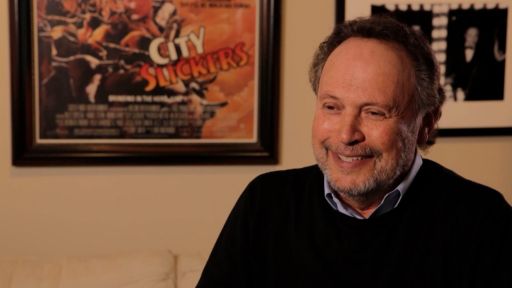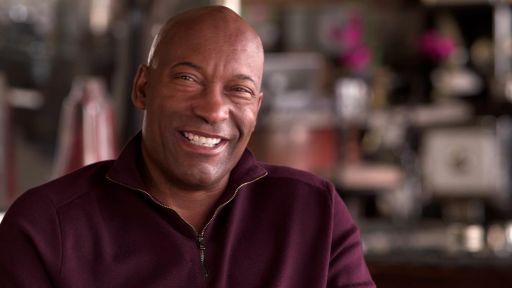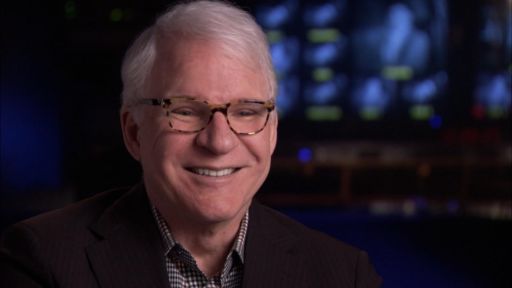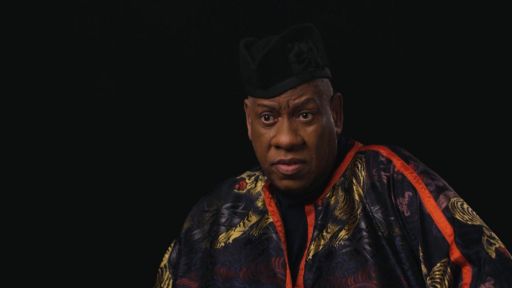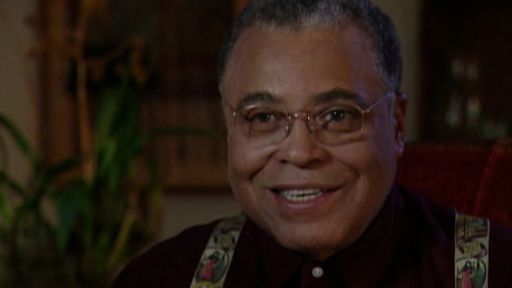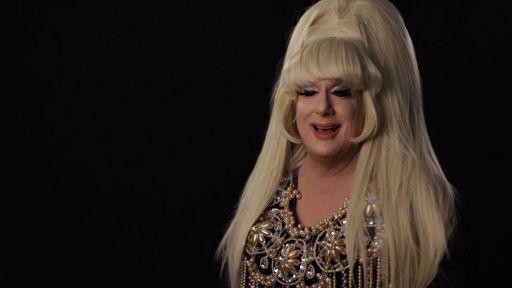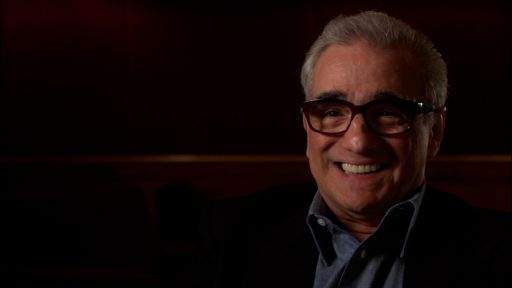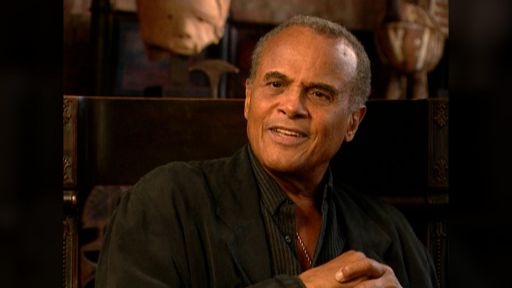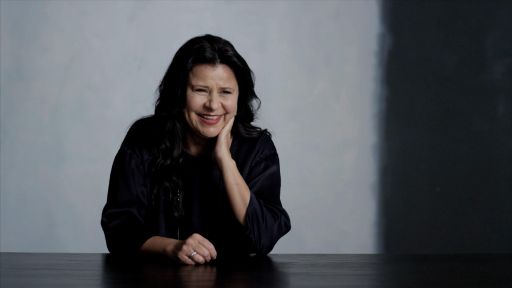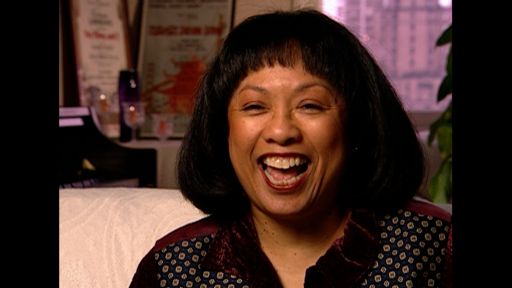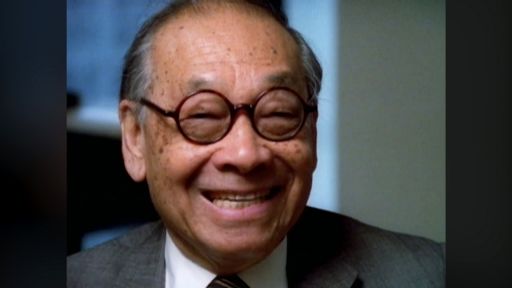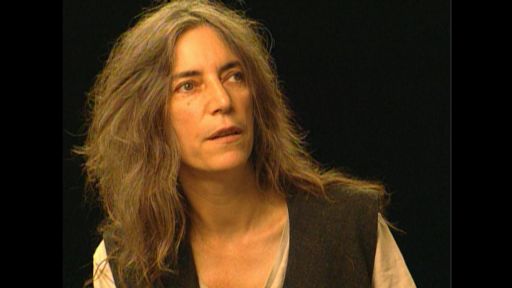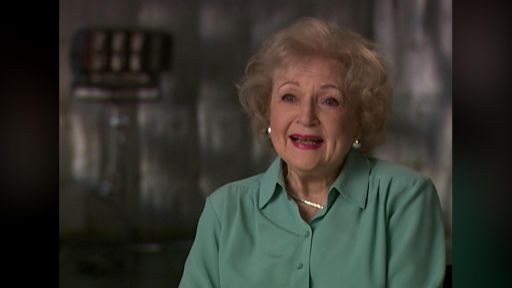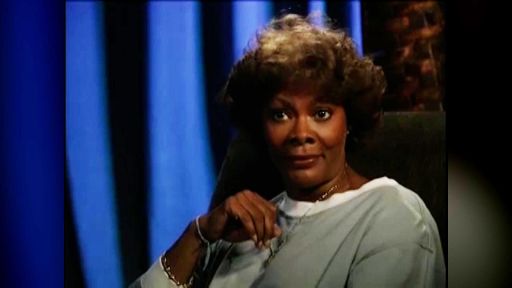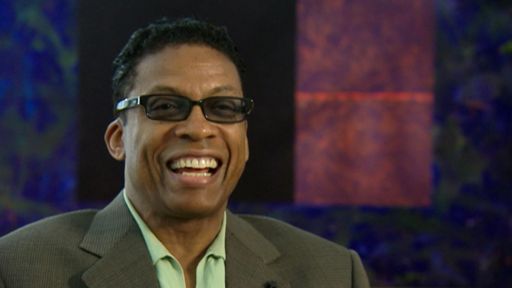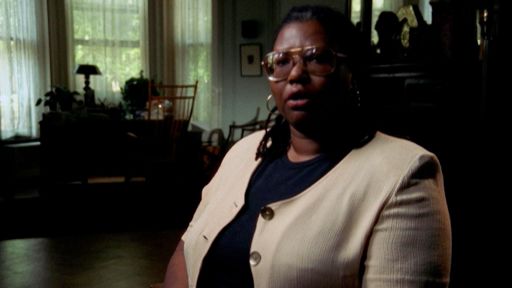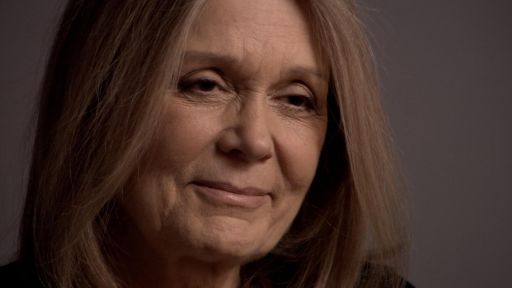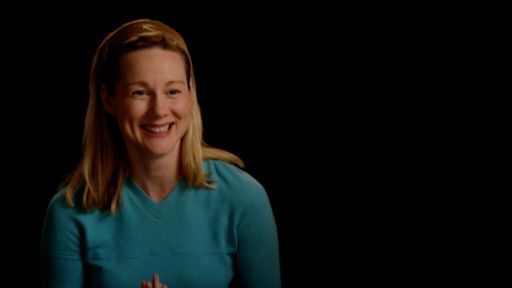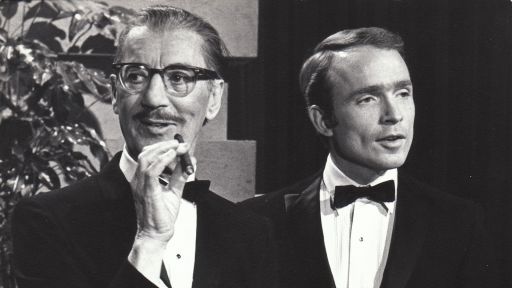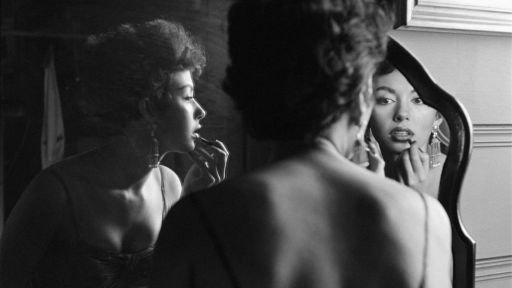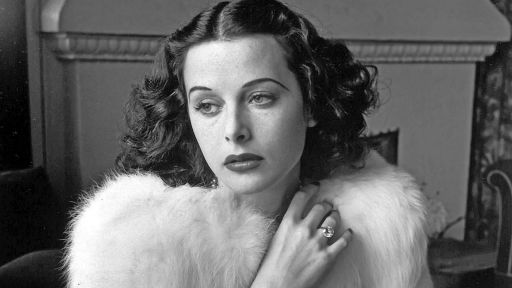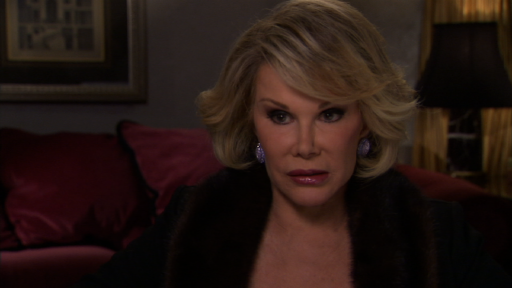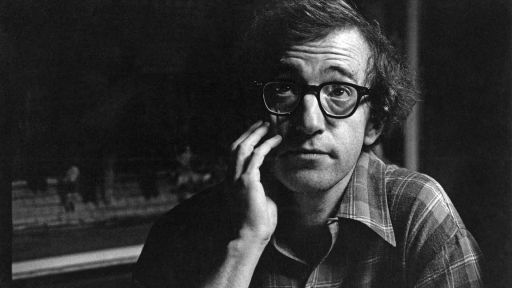TRANSCRIPT
- I loved when she finally got to dance with Van Johnson and it was so beautiful, and you really saw that she really was unbelievably talented and incredibly gorgeous.
And she goes into the dressing room and she like, she does this, and she's like, and it's so real, and it's so honest and it's so beautiful.
And it, I was a child watching it, and wanting to be an actress, and wanting to be Lucy, and wanting to be a star, and everything, I wanted to be married to a handsome husband like Ricky.
But in that moment, it made me realize what a star she was, what a great show that was.
Desilu, the concept of these two people that, and everybody told them that it couldn't be done, that nobody wanted to see a show with a Cuban with an accent, that was considered a mixed marriage, and they wanted to do it with an audience, so you can really feel the laughs, and they wanted to, they owned it, it was all breaking ground, and they did it so well.
And there were so many shows that became Desilu shows, I mean, even more current shows like "That Girl" was a Desilu show, if I recall.
And growing up over the years most of my favorite shows were Desilu shows.
So yes, absolutely, I always thought that that's, I would wanna make "The Nanny" kind of a cornerstone of my own production company and maybe my own studio someday.
I did feel like I had a good idea of the kind of character that could catapult me, could put me into a high visibility position, could be well received by the American public.
And by the same token that was why it was a very specific choice that I wanted Mr. Sheffield to be British, because as long as he's not American, then I am, if he is American, then I'm like this Jew from New York.
And I thought, mm, you know, I don't wanna, even though, I mean the accent is there, and clearly that's what I am, and I never made any bones about it.
Then I'm the first character to be a Jewish woman on television, playing a Jewish woman and speaking Yiddish on a sitcom, that's a big hit show.
So we made no bones about it but I was really an all-American girl, I was a blue collar working class girl, I was very patriotic, I love my country, and I love life here, and I feel lucky to be living here, and Mr. Sheffield was a foreigner, and he didn't get it all the time.
He didn't have the inside scoop on us Americans and what we're like here in the good old US of A and how we do things here.
And that was a very definite choice of mine to keep me homogenized with the entire nation.
There was something very positive about the way her show was written, the way that show "I Love Lucy" was written, that enabled Lucille Ball to remain the centerpiece and the clown of her own television series.
And all too often what happens when you write a television show it's very hard to keep the central character a clown, more often than not it's the secondary characters, the nutty neighbor, the friend, that becomes more of the clown characters.
A good example of that was Rhoda was the clown to Mary Tyler Moore.
But then when she got her own show they surrounded her with clowns, and she sort of became a little bit more of a straight person.
When we were starting "The Nanny," we discussed at great length what I believe to be a very successful formula in the "I Love Lucy" series, by means of finding a way for the writers to make Lucy the centerpiece, make her the one that becomes more often than not culpable, and then in the end, it all gets resolved.
And yet the the secondary characters and the supporting cast being equally funny in their own right.
It's a very delicate line to have to walk, and I think that they managed to do it very well on "The Nanny," and it was something that we were constantly monitoring and making sure it's like, sometimes I would get some material, and it would be like, well this is hysterical, but what am I doing in this?
And what is Fran, how is Fran driving this plot?
How is Fran driving this show?
And why were they always able to accomplish that on the "I Love Lucy" show?
I'm sure that they threw out a lot of ideas that seemed to make a certain character have a very funny storyline, but it made it difficult for Lucy Ricardo to drive the show.
And we made that a prerequisite for every, and I outlined all of the episodes on "The Nanny" along with another executive producer and a little staff of writers before we would ascend it on to a writer to actually write the full play.
But so we were very careful how we walked every story through scene by scene, so that it sort of stayed with the same kind of formula that "I love Lucy" had.
There's something very nostalgic about that 50s relationship where he says, "Lucy, you are in trouble."
And sometimes he literally spanked her on TV, I remember, he would like put her over his knee, and he'd start spanking her and she'd go, (imitates baby crying) and everybody was like, "Oh, is this funny?"
And I thought, well, I love that relationship, it's really nostalgic and it's very clean, I think that there's a lot of confusion that we have to go through, I mean, obviously, if you don't want to be a 50s housewife if you do, fine, but if you don't, there's going to be some graying of the boundaries between men and women in today's culture, and it's confusing, and sometimes it's like you don't know how you're supposed to be, and men still sort of are uncomfortable if you make more money or you're strong or they're weak or who knows, it's like a million things that everybody is still trying to figure out culturally.
So I really wanted to do something that was a throwback to that nostalgia, because those were the days when everything was sort of like clearly defined and reminds us of "The Wonder Years."
But you can't do that and be a married couple on television today, I mean, nobody would put up with that.
So the only way to do it was to make her his employee, because then he can say, "Miss Fine," and it would be like, "Whew, I'm in trouble," and I'd start running, and he'd chase after me in the house and it would be like a Lucy and Ricky thing, but the only way to adapt it to the 90s was to make him her employer.
And that way, she could like kind of work her ways in an upstairs, downstairs way, manipulate him behind his back, but when he stomped his foot and screamed "Ms. Fine," which he did a thousand times if he did it once on "The Nanny," it was exactly like when Ricky would say, "Lucy!"
"You are in trouble!"
and so.
And that was very purposeful, and it was a real choice that I made when developing this show, because I think that that is very funny.
But you can't get away with it as a married couple anymore because he would be too tyrannical, and she would be a doormat, and who wants to see that?
In the 50s, it was different on the "I Love Lucy" show, you accepted it and throughout all the years, because it's sort of a black and white thing, it's an old fashioned kind of a sitcom, and so you watch it in the context that it came out of.
But if the same scripts were reproduced today with another cast, it would not be successful, aside from the fact that you couldn't, that cast was helped made the show, obviously, but also because nobody really wants to see a married couple function that way anymore.
The Lucy character and the Miss Fine character are very similar in the sense that they did what they wanted, even if it was like behind their husband's back, I mean, well my boss, her husband's back, they ultimately did what they wanted.
Lucy wanted to be in show business more than anything, and she just worked her way in every time, I mean, it drove him insane, but there was no stopping her, she did what she wanted to do.
Now, she was by no means a June Cleaver because she was not happy sending him out to work with a paper bag filled with lunch that she prepared and tidy up the house and make it all ready for him when he gets home, that wasn't what she was about, the minute he left, she started scheming with Ethel how she can get her way and do what she wanted to do behind his back.
Now that was something that was similar between Miss Fine and Mr. Sheffield on the show, because also, she worked her ways to get what she wanted, but it had to be behind his back.
And ultimately sometimes he'd find out, sometimes she'd get caught, sometimes it would backfire, and he'd have to get her out of trouble, and then it would be like, you'd see the sort of little hearts around her head if you could that he was a hero and sort of like her Cary Grant, which I think Ricky was too, he was strong and Latin, and handsome and talented, and even though he was a bit stodgy, he was a good balance for her wildness and immaturity.
And that was the same kind of correlation with myself and Mr. Sheffield, he was a kind of a bold be bold, and always looked handsome, and a real kind of Cary Grant character, always looked stunning.
But she had to work her ways behind his back.
Now, in a contemporary relationship like "Mad About You," that would never happen, I mean, she should be able to say to him, "No, this is really what," and they would communicate, but (laughs) that's a very contemporary term.
And you don't really, I mean Ms. Fine didn't communicate with Mr. Sheffield, Lucy didn't communicate with Ricky, she did what she wanted to do, she went after what she wanted in spite of what he would order her not to do, which I think in a certain way is of course, feminist, makes her her own person and everything like that.
She knew how to manipulate her man, she knew how to work it out that she can get what she wants, and that's what was so funny, you always knew in the end it was gonna be a happy ending.
But for those 22 minutes, you went on a journey to see just how she was, Lucy was going to get her way, and it was the same with Ms. Fine and Mr. Sheffield, in spite of she would look right into his face, he would scream at her 'till he was blue in the face, he would stomp out of the room, and then she would say, "Okay, come on, let's go, well, men," just totally ignore him, like he never said anything to her.
And I think that, that is not a contemporary communicative relationship that you would see on a show like "Mad About You," which I think is one of the definitive husband wife kind of contemporary shows 'cause sitcoms, but in her own way, she managed to do, and my mom and dad, when I was growing up, every often my mom would say, "He don't have to know, he don't have to," and sometimes I'd say, "Ma, why are you letting him go out of the house that way?
He looks terrible."
"You don't have to be so gorgeous for other women, I love him, I like the way he..." And I think that this is the kind of mentality that Ms. Fine had about things as well as Lucy, I think she had her own agenda and it was somewhat separate from him, and in a way, maybe it's healthier, and if maybe women were a little, maybe women need to be a little smarter in that way that certain things you should communicate, and other things you have to respect that the differences, and just sidestep it, do what you want, but not have to change the other person into seeing your point of view, just sort of work your ways, your mysterious ways behind his back and live happily ever after.
Of course that wasn't the behind the scenes for either couple in the making of these two shows we talk about, but, and therein lies the rub.
Sitcoms is sitcoms and real life is real life.
- [Interviewer] Well, you said something that made me think about the New York Times review in 1951 or '53, I think after... - Don't tell me they compared her to me.
(laughs) - [Interviewer] They said that its success was that it was grounded in believability, so they weren't just doing silly storylines for the sake of the silly storyline, but that everything had to serve the characters, the premise.
And I think that's true of your show also.
- I think that we talked about "Roseanne" a lot in that context also.
The show "Roseanne," no matter how out there it was there was something very organic about the fact that you believe that bottom line was she really did love her husband, she really did love her kids, and she really was a good person, she was just not afraid to show us that she was a flawed person.
On "The Nanny," and I think that she also probably looked at a lot of things with Lucille Ball, who obviously was the front runner and the pioneer for all of these women in television having their own series, for "The Nanny" it was very important to me that my character be very likable, be very accessible.
She was a gal that was not particularly well educated, she came from a working class blue collar family, and yet she had a great capacity for love, and a tremendous wisdom streets smarts.
She treated the kids like they were equals, she respected them, and they her, and she would get into her own mischief, but her heart was always in the right place.
This was very important to me, and I think that it might even have taken that kind of thing to another level, a more contemporary level than on the "I Love Lucy" show, where it wasn't, I don't think that she had as many opinions about a life, or what was good, or what was bad, or what she approved of or disapproved of.
But I think that you honestly believed the genuineness of the relationship with her and Ricky, and her love for the Mertzes, and that she had a very good heart, and no matter what kind of mischief she got into, you liked her.
There was also an ingredient to Lucy's character, that was something that was very important to my character, and I think that it's something that you see in some very successful television series even like "Home Improvement," which Tim's character also shared this, the central character has an immaturity to her, to him, that makes them very enjoyable to watch, and particularly for families.
Kids like it, adults like it, there's an ease to and a naivete to the character on certain levels.
She had a real energy in the same, my character Fran had the same kind of energy that Lucy had where there was no "I've got a plan," and then she'd go ahead, and go into all kinds of crazy things, and just because Lucy always said that very, very often on "The Nanny," I would say, "I've got a plan," because occasionally we would pay homage to Lucille Ball, and the "I Love Lucy" show, but I think that that lightheartedness of character, that ability for the central character to have childlike qualities is extremely appealing.
Of course, nobody is really like that in real life, You can have a certain energy, you can be young at heart, but a true immaturity probably would get annoying after a while.
On "The Nanny," my character very often was more immature than the kids, the kids took on a parental role over me, and kids liked watching that, families enjoyed it.
The character also wasn't afraid to be glamorous and sexy, and that's something that Lucille Ball I think, sort of really started on television for women.
She liked wearing, and yet so often they were complaining that they didn't have money, and yet she always looked great, and she wasn't afraid to really be very stylish, very often her costumes were designed and it looked it, but she was so human and so grounded, and so real, that when she'd go buy a new hat to cheer up, or she'd buy an outfit that she really couldn't afford and was afraid to tell Ricky, or whatever, then women across America could really relate to her, and she seemed like the every man, which is what I always refer to my character like as well, that Fran Fine too was the everyman.
And I wore, if I personally bought all the costumes that my character wore, I would be bankrupt today, fortunately it was an extended closet for me and I never had to buy any of it.
But the couture designers that I wore on that show, and all she ever said was, that she got it at Loehmann's.
And everybody ate it up with a spoon, because she was just really real.
But we tried to get into places to, I wanted to show that my character was only human, that she was conflicted, so even though she inherited from an aunt a mink coat that she didn't wanna wear, 'cause she felt like she didn't wanna wear a dead animal on her back, she would say, "Pass the tongue," and stick like this big tongue sandwich in her mouth.
And that was the joke, and it showed that she was conflicted in almost everything across the board as we all are.
I couldn't personally hunt for my own food, but I will eat chicken or meat or whatever if I had to do it myself, of course I couldn't.
But, and so we're always conflicted with things like that, and I don't wear furs either.
I tried to infuse in the character things that were going on in my life, and I have a feeling that Lucy and Ricky reflected things that were going on with Lucy and Desi as well.
What really rounded out the rough edges of that show was the heart and the humanness, and those moments carried you from show to show to show, and all the laughter that filled in between it was those moments, which I think that we captured on "The Nanny" as well.
And it was only because they became so real and so honest in front of the American public on the "I Love Lucy" show that we had the courage to do it on our own.

